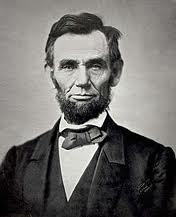 The Creed of Abraham Lincoln in His Own Words
The Creed of Abraham Lincoln in His Own Words
By William E. Barton[1]
I believe in God, the Almighty Ruler of Nations,[2] our great and good and merciful Maker,[3] our Father in Heaven, who notes the fall of a sparrow, and numbers the hairs of our heads.[4]
I believe in His eternal truth and justice.[5]
I recognize the sublime truth announced in the Holy Scriptures and proven by all history that those nations only are blest whose God is the Lord.[6]
I believe that it is the duty of nations as well as of men to own their dependence upon the overruling power of God, and to invoke the influence of His Holy Spirit; to confess their sins and transgressions in humble sorrow, yet with assured hope that genuine repentance will lead to mercy and pardon.[7]
I believe that it is meet and right to recognize and confess the presence of the Almighty Father equally in our triumphs and in those sorrows[8] which we may justly fear are a punishment inflicted upon us for our presumptuous sins to the needful end of our reformation.[9]
I believe that the Bible is the best gift which God has ever given to men. All the good from the Saviour of the world is communicated to us through this book.[10]
I believe the will of God prevails.[11] Without Him all human reliance is vain.[12] Without the assistance of that Divine Being, I cannot succeed. With that assistance I cannot fail. [13]
Being a humble instrument in the hands of our Heavenly Father, I desire that all my works and acts may be according to His will; and that it may be so, I give thanks to the Almighty, and seek His aid.[14]
I have a solemn oath registered in heaven[15] to finish the work I am in,[16] in full view of my responsibility to my God,[17] with malice toward none; with charity for all; with firmness in the right as God gives me to see the right.[18] Commending those who love me to His care, as I hope in their prayers they will commend me,[19] I look through the help of God to a joyous meeting with many loved ones gone before.[20]
[1] William E. Barton, The Soul of Abraham Lincoln (Urbana and Chicago: University of Illinois Press, 2005), 300. This book is a reprint of the 1920 first edition published by George H. Doran Co. Chapter XXIII is titled, “The Creed of Abraham Lincoln.” The chapter consists of “a series of short quotations from documents, letters, and addresses, certified as authentic and touching directly upon points of Christian doctrine.” After presenting these quotations, Barton arranges, with minimal editing, several of Lincoln’s phrases into the form of a creed, quoted above in the text. In the notes below, I have linked the phrases to The Collected Works of Abraham Lincoln, the online version of Roy P. Bassler’s authoritative series of the same name. The online version replicates Bassler’s page divisions, so I’ve noted the page number of the quotation to aid in finding it in the text.

